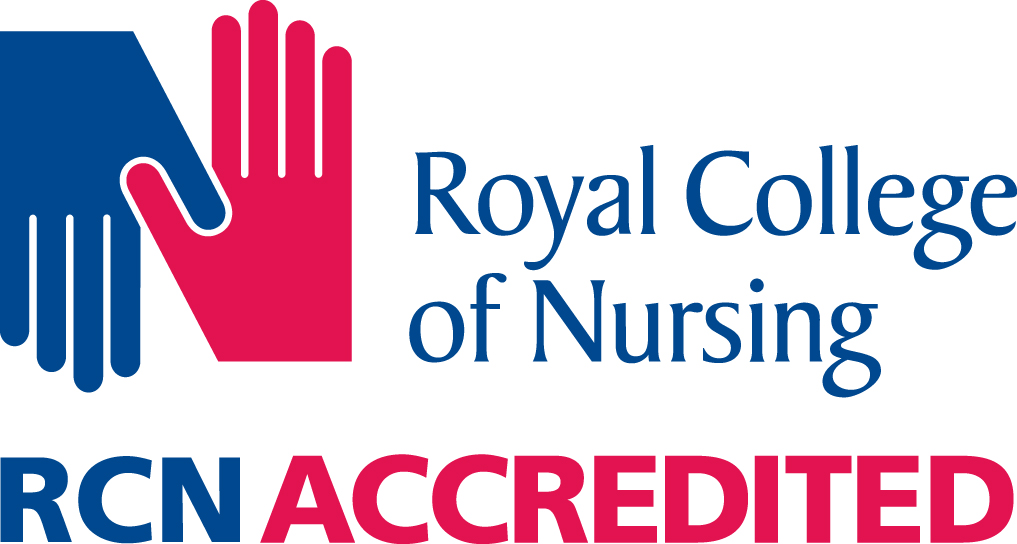
A13 Minor Ailments Essentials: Accredited by the RCN Centre for Accreditation

This programme has been accredited by the RCN Centre for Professional Accreditation until the 28th April 2026: Accreditation applies only to the educational content of the programme.
Course summary
Practitioner Development's RCN accredited Minor Ailments Essentials Course is designed to equip healthcare professionals with the necessary knowledge and skills for managing minor illnesses encountered in primary care settings. This course aims to provide comprehensive training in assessing, diagnosing, and treating a variety of common minor ailments. With a focus on practicality and relevance, our program covers a wide spectrum of conditions, ensuring that participants are well-prepared to address the diverse healthcare needs of their patients.
Who should attend?
Nurse practitioners
Practice nurses
Non-medical Prescribers
Pharmacists
Paramedics and other allied health professionals
Important notes
INCLUDED:
All course material, evaluations and certificate are provided.
The course runs from 10:00am- 4:30pm and is delivered virtually on Zoom.
Note: This course assumes attendees are confident in history taking & physical examination. If you need to develop these skills please check out our 5 Day Patient Assessment workshop.
RCN cannot confirm competence of any practitioner. Competence must be developed in the workplace with appropriate clinical facilitators.
RCN Accreditation focuses on continuing professional development and does not mean that the course has been accredited as equivalent to education or assessment that would demonstrate advanced level practice. The course cannot be used as a route for RCN Credentialing. The course is intended for continuing professional development, provides a knowledge base only and is not suitable for preparation for a new role.
Cost
| Course duration | Course CPD | Full price (incl VAT) per person |
|---|---|---|
| 3 day(s) | 24 hour(s) | £529 |
Discounts
| Dates | Block size | Block discount |
|---|---|---|
| 22/04/2026 - 24/04/2026 | 4 | 10% |
| 14/07/2026 - 16/07/2026 | 4 | 10% |
| 14/10/2026 - 16/10/2026 | 4 | 10% |
| 12/01/2027 - 14/01/2027 | 4 | 10% |
Dates / venues
| Location - venue | Dates | No. of people |
|---|
Aims / objectives
Aims:
- Provide comprehensive training in managing minor illnesses in primary care.
- Equip participants with essential skills for assessing, diagnosing, and treating common minor ailments.
- Foster confidence in addressing a diverse range of minor healthcare needs.
- Ensure training is practical and relevant to real-world clinical scenarios.
Objectives:
- Familiarize participants with common minor illnesses like coughs, colds, sore throats, and ear infections.
- Guide thorough assessments and accurate diagnoses of minor ailments.
- Offer evidence-based treatment guidelines for non-pharmacological management, over-the-counter and prescription medications.
- Enhance communication skills for patient education and involvement.
- Address legal and ethical considerations, including patient consent and confidentiality.
- Emphasize the importance of proper documentation and record-keeping.
Course programme
Our Minor Ailments Essentials Course covers a comprehensive array of topics crucial for managing minor illnesses in primary care. Delving into the specifics of each ailment ensures that healthcare professionals are adept at handling a wide spectrum of conditions. The course content includes:
- Overview of Common Minor Illnesses: A thorough examination of conditions such as coughs, colds, sore throats, red or painful eyes, ear infections, sinusitis, conjunctivitis, and other prevalent minor ailments.
- Assessment and Diagnosis: Guidance on conducting detailed assessments and making accurate diagnoses across various minor illnesses.
- Treatment Guidelines: Evidence-based recommendations for managing minor ailments, encompassing over-the-counter medications and prescription guidelines.
- Patient Education: Strategies for effectively communicating with patients about their minor illnesses, empowering them to play an active role in their care.
- Legal and Ethical Considerations: A discussion of pertinent legal and ethical issues in managing minor illnesses, including patient consent and confidentiality.
- Documentation and Record-keeping: Guidance on documenting assessments, diagnoses, treatments, and follow-up plans in line with professional standards.
- Referral Pathways: Understanding when to refer patients to other healthcare professionals or services for further assessment or treatment.
In addition to the overarching topics, the course delves into specific minor illness categories, including:
- Red or painful eye
- Upper and lower respiratory tract presentations, encompassing painful sinuses, sore throat, cough, and bronchitis
- Head, neck, and back pain
- Ear problems such as hearing loss and ear infections
- Acute abdominal pain, covering diarrhoea, vomiting, constipation, indigestion, ectopic pregnancy, and more
- Gynaecological overview, addressing vaginal discharge, pelvic pain
- Skin conditions, including examination principles, eczemas, psoriasis, infestations, bacterial, viral, and fungal infections
- Headaches such as stress, migraine, sinus and cluster headaches.
- Mental health, focusing on depression, assessment, and management essentials
Led by
TBA
Participant Voices!
VT- “The lecturer was fantastic — knowledgeable, engaging, and made the course very practical with VR scenarios.”
BW- “Excellent course that taught me how to manage common ailments confidently.”
TH- “All elements were useful, and the tutor’s delivery made everything easy to understand.”
MT- “Probably the best course I’ve attended for content and delivery — highly recommended.”
